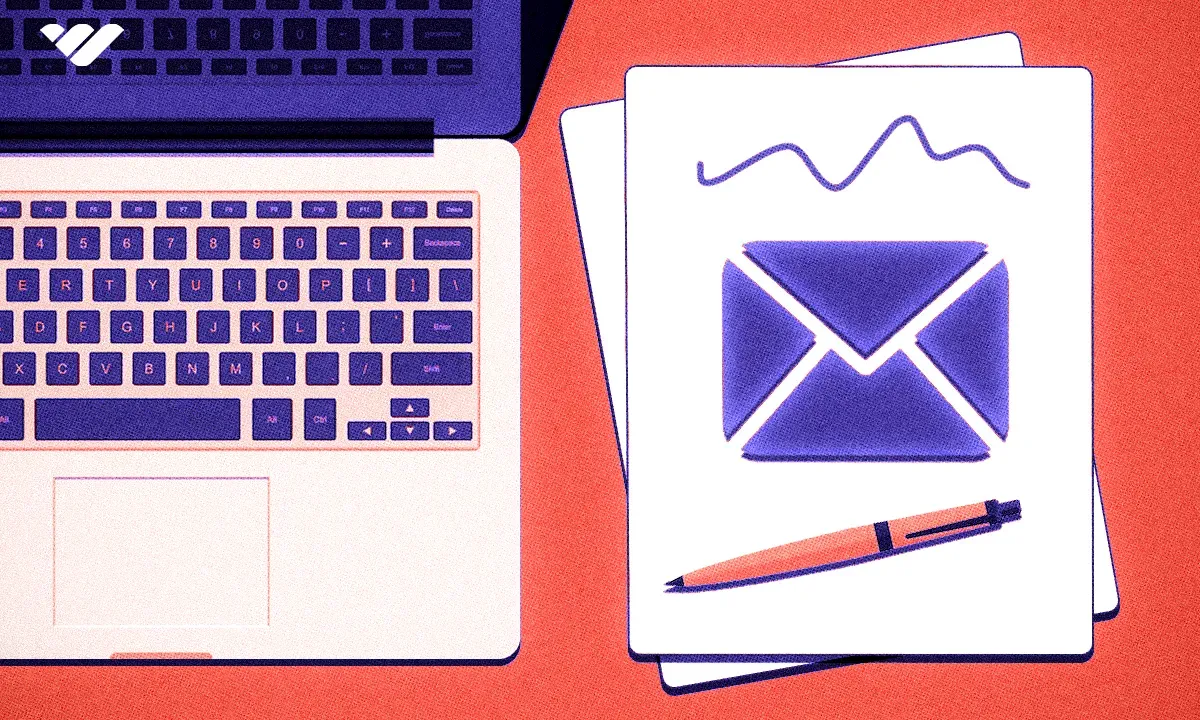Discover the importance of proving your address and the necessary documents required for various services. Learn how to verify your residency for business purposes, banking, and more. Ensure compliance and protect your identity with the right proof of address.
Key takeaways
- Valid proof of address requires recent documents (3-12 months old) showing your full name and address from recognized authorities.
- Utility bills, bank statements, leases, and government letters are the most commonly accepted proof of address documents.
- If bills aren't in your name, alternatives like landlord letters, employer documents, or social services correspondence can verify your address.
You probably have a legal address, but can you prove it? It might seem like a small thing to need to verify, but there are several valid reasons for confirming your address, and to do so, you'll need to produce official documents. From registering children in school to opening bank accounts or applying for insurance, you need to be able to prove your address.
Some companies, organizations, and agencies only assist if you live within a certain area. Others, like insurance, may change their pricing based on the risk of you filing a claim using local data.
While you might think that your government-issued ID or driver's license is enough, some places require you to have more recent documents to verify that you do, in fact, still live in that location.
Several documents can help establish your residency and prove your address. However, different companies or agencies may require specific forms. Be sure you check with the company requesting proof of address to determine which forms they find acceptable.
In the meantime, enjoy your crash course on what a proof of address is, what makes it valid, and how to prove your address when you don't have the typical documents used.
What is a proof of address?
Documents that verify where you live are considered proof of address. Many companies may request this before issuing services, including government agencies and financial institutions.
Organizations require proof of address to verify that the information you've provided is accurate. This can be especially important for services limited to your specific area, such as insurance products, which look at your ZIP code to help determine your rates. Schools also require proof of address to ensure students live within the approved zones.
Not all documents are considered proof of address, but those that are typically include your full name and residential address. Utility bills, leases or mortgage documents, and official government correspondence are a few commonly accepted forms.
By verifying addresses, businesses can improve security and reduce the risk of identity fraud.
When would you need a proof of address?

Seeking certain services from government agencies or financial institutions can lead to you being asked to verify where you live. This helps companies have a way to send you important correspondence or know where to find you if they need to. While not all companies will require proof of address, many do.
You might need a proof of address if you're:
- Applying for ID: Getting a driver's license, state-issued ID, or passport typically requires you to verify your address. IDs are often accepted as formal proof of address (with some limitations that'll be discussed later), so the government must confirm that you really live where you say you do.
- Seeking government services: Applying for government services like Supplemental Nutrition Assistance Program (SNAP) benefits, Medicaid, or Temporary Assistance for Needy Families (TANF) typically requires you to prove your address. Because these services are only available to local residents, you must prove you live within the state you're applying for benefits in.
- Registering to vote: In most cases, a driver's license or state-issued ID is enough to register to vote. However, if you don't have these, you might be asked to provide other documents to serve as proof of identity and address. Because state, county, and municipal elections require you to live within their jurisdiction to vote, it's important to confirm your address.
- Setting up utility accounts: Proof of address helps utility companies establish your residence where the services will be provided. It's important to keep billing accurate as well.
- Banking: Opening a bank account or applying for loans or credit cards also requires proving your address so you can receive your documents and physical cards in the mail. Financial institutions have a duty to prevent fraudulent activity, and tracking the addresses of clients is required by law for security. Beyond that, knowing where you live allows financial institutions to seek legal action if you don't pay off your debts.
- Verifying employment: Some employers may request proof of address to help confirm your identity.
- Registering a business: Typically, to register a business with your state, you must provide proof of address. This may be a document showing your business's address if it's separate from your home. If you don't have a physical business location, you can instead choose to use a registered agent service, which can provide a physical address for your business. Essentially, a registered agent is someone who accepts mail in an official capacity for your business. They have a physical address where you register your business to satisfy any registration requirements.
- Enrolling children in school: Most public schools have attendance zones. To attend, you must live within the approved area. The school requests proof of address to confirm that only students who are supposed to attend the school do.
- Applying to college: Most public colleges and universities charge tuition based on where you're from. People who reside in the same state as the school typically pay the lowest amount, while those from out of state or out of the country pay higher tuition.
There may be other situations where a company or agency requests proof of address, but they'll usually be pretty upfront with you about their requirements, such as providing a detailed list of exactly what documents they need.
What’s accepted as proof of address?
Generally speaking, current or recent documents that display both your full name and your full address can be used as proof of address. However, agencies or companies asking for your proof of address generally have their own list of acceptable documents. Choosing anything from the list they provide you is generally a safe bet.
Commonly accepted documents that can serve as your proof of address include:
- Recent utility bills: Utilities like electricity, water, gas, or landline phone bills typically display your address. This satisfies many proof of address requirements.
- Recent bank statements: Official correspondence from a financial institution like a bank will display your residential address and full name.
- Recent government-issued letters: Tax statements, letters from Social Security, or documentation showing that you're actively receiving WIC, SNAP, or Medicaid can also prove your address.
- Current rental agreements or leases: A current lease showing your address proves that you're currently residing in a specific location.
- Current mortgage statements: A current mortgage statement shows your name and the address of the property you own. This satisfies most proof of address requirements.
- Valid state-issued ID: To receive a state-issued ID or driver's license, you must verify your address, and so many institutions will accept your government-issued ID as proof of residence.
- Current insurance policies: Health, home, car, and life insurance policy documents typically include your residential address.
- Current employment documents: Many official documents you receive from your employer have your address printed on them. Employment contracts, official letters from your employer, or a recent pay stub may be acceptable forms of proof of address.
- Current school records: In some cases, current school records can prove your address.
- Recent tax documents: Recent tax documents, like property tax statements or your annual tax return, have your address and full name displayed. These official documents may be used by some institutions as proof of address.
When is a proof of address valid?
Generally, a valid proof of address has these features:
- It displays your full name that matches your state-issued ID.
- It has your current residential address.
- It comes from a recognized authority, displaying its key information (name, address, and logo). These are typically documents from banks, government agencies, or courts.
- It displays the date that the document was prepared. Typically, the date should be from the last three, six, or twelve months based on the type of document it is. A utility bill, for example, should be no older than three months. A bank statement is often acceptable if it's from the last six months. Government letters typically serve as proof of address if they're from the last twelve months. However, some agencies or companies may ask for more recent documentation from the last month.
Because some of these documents can be quite old, it's possible to show proof of address from a previous residence. To minimize the risk of fraud or inaccurate information, some agencies may request two forms of proof of address.
When is a proof of address not valid?
A document providing proof of address may not be accepted by the agency requesting it for several reasons. Again, it's essential to confirm with them what they will accept as proof. Certain documents may not be accepted, including:
- ID: While your ID and passport are technically valid proof of your address, some agencies may not accept them. This is because these documents primarily confirm your ID and if they're requesting proof of address separately, they can't reuse the same document for both purposes. If they say you need an ID and proof of address, they likely want additional documentation.
- Old or outdated documents: It's always best to provide the most current documents possible, especially if you're using a utility bill or other mail as your proof of address. If it's older than a few months, it's likely not admissible.
- Handwritten bills or letters: Typically, a proof of address document has to come from an authoritative source, like a government agency, a bank, or another official institution. If a letter or bill is handwritten, it's not likely to have come from an authoritative source.
- Photocopies: All documentation should be the original copies, not photocopies. This helps verify the authenticity of the documents in advance.
- Any documents not on the official list: The agency requesting proof of address will typically provide a list of acceptable documents. If it's not on the list, it doesn't count, even if another agency considers it acceptable.
What to do if you don’t have proof of address
If you don't have proof of address right now, it can still be easy enough to request or receive it, but it might take some time. We'll go through some scenarios and the actionable steps you can take.
There are several reasons you might not have valid proof of address documents with your name on them. For example, young adults who just turned 18 and still live at home may not have their name on a lease or other utilities. A stay-at-home parent or partner might not be listed on the utilities or mortgage because they're not the ones paying them.
If you don't have proof of address, it's a fixable problem. Let's look at how you can obtain your own documents to prove your address.
When bills are not in your name
If you don't have any bills in your name, you can still prove your address, though it can be a bit more difficult. This isn't likely to be an issue for many established adults, but young adults just setting out in the world might find themselves in this position. Try not to worry too much—you still have options! Try some of these documents:
- A letter from your landlord: A lease is commonly accepted to prove your address, but if you're not on the lease as an adult, you might not have that to fall back on. A landlord can write a letter affirming that you live at a specific property. This may be useful if you're a young adult still living at home, but not all institutions will treat this as valid.
- Social services: Try applying for social services like Medicaid, WIC, SNAP benefits, Social Security, or disability. You will receive official mail in return, even if they're just documents telling you that you don't qualify for these services. That official letter, which displays your name and address, can be used as proof of address.
- Official mail: Other forms of official mail can count as your proof of address. Official mail, sometimes called penalty mail, is anything sent by government agencies.
- Bank statements: If you have an active bank account, use your most recent bank statement as your proof of address.
- Notarized affidavit of residency: In a pinch, you can seek a notarized affidavit of residency. To get this legally binding document, you must swear under oath with a notary present to confirm your current residential address. It includes your full name, your complete address, and the date your residency started.
- Voter registration card: You may be able to use your voter registration card to prove your current address.
If you’ve recently moved house
If you've recently moved, you might not have up-to-date tax or bank statements with your current address yet. In this case, it can help to update your address promptly with any banks, government agencies, or employers so they can issue their next documents with your current address.
However, if you can't wait that long, you might be able to provide your new lease agreement, which should show the date you assumed tenancy and your full legal name, to verify your address.
If all your documents are digital
Increasingly more and more agencies accept digital documents, as paperless statements and bills have become commonplace. If you receive all of your documents digitally, consider checking with the company requesting proof of address. They may accept you printing out these documents for submission.
In some cases, they may even have an online system where you can upload PDFs or other digital copies of your proof of address. Just make sure that the digital copy you submit includes all key information, including your name, the date the document was prepared, and your full legal address.
If they refuse digital documents, you can often get paper versions sent to your home. For example, you can enroll in paper statements for a month or two with your bank and use that for your proof of address.
Starting your own business? Here’s how Whop can help

Proving your address matters when registering your business as its own entity, but it's just one of many moving parts you'll need to handle. Learning how to build and manage a business effectively can be invaluable in helping you achieve your dreams.
If you've been busy at work putting together a new business model or if you're ready to take your existing company to a new level, you need Whop.
Whop is a social commerce platform where you can connect with other business-minded individuals and build your network. It's the place to be if you're looking to learn more about running your business.
Whether you want to take business courses, download ebooks on marketing and ecommerce, or find a place to discuss a wealth of information from experts, Whop is your go-to choice.
If you're ready to start your money-making adventure, head over to Whop and start learning.



